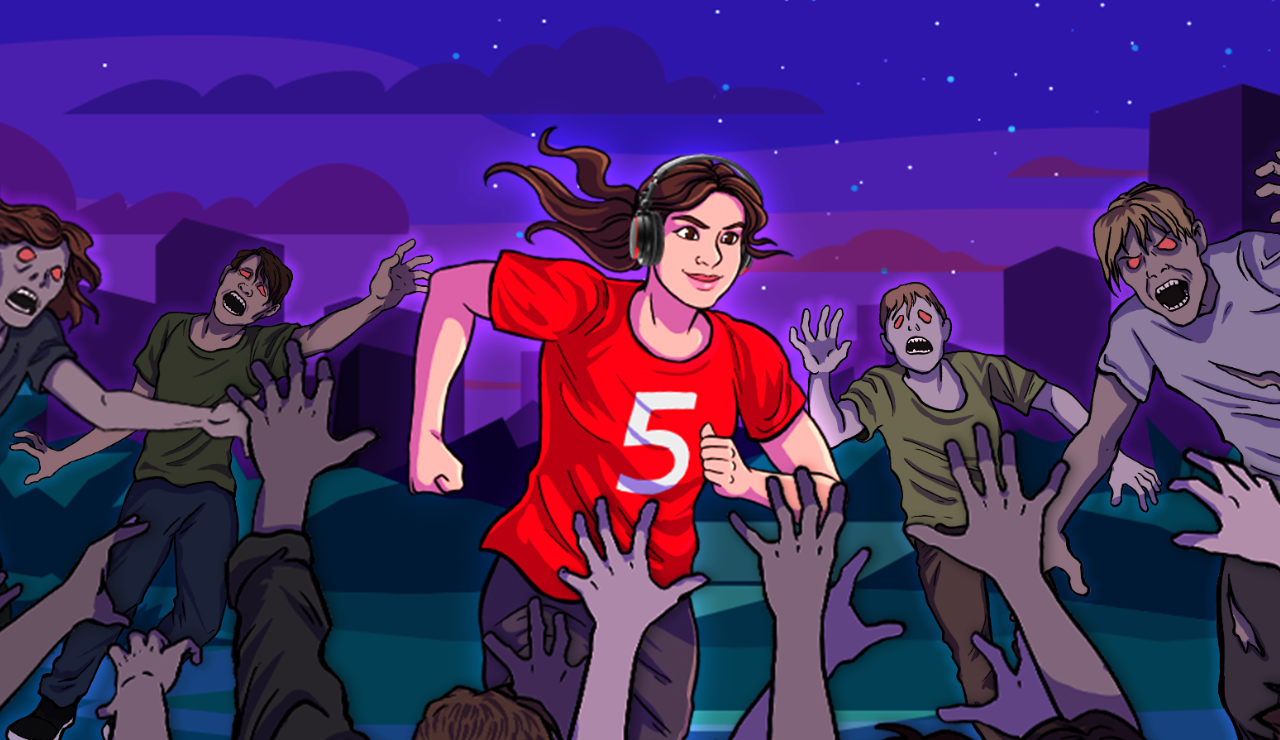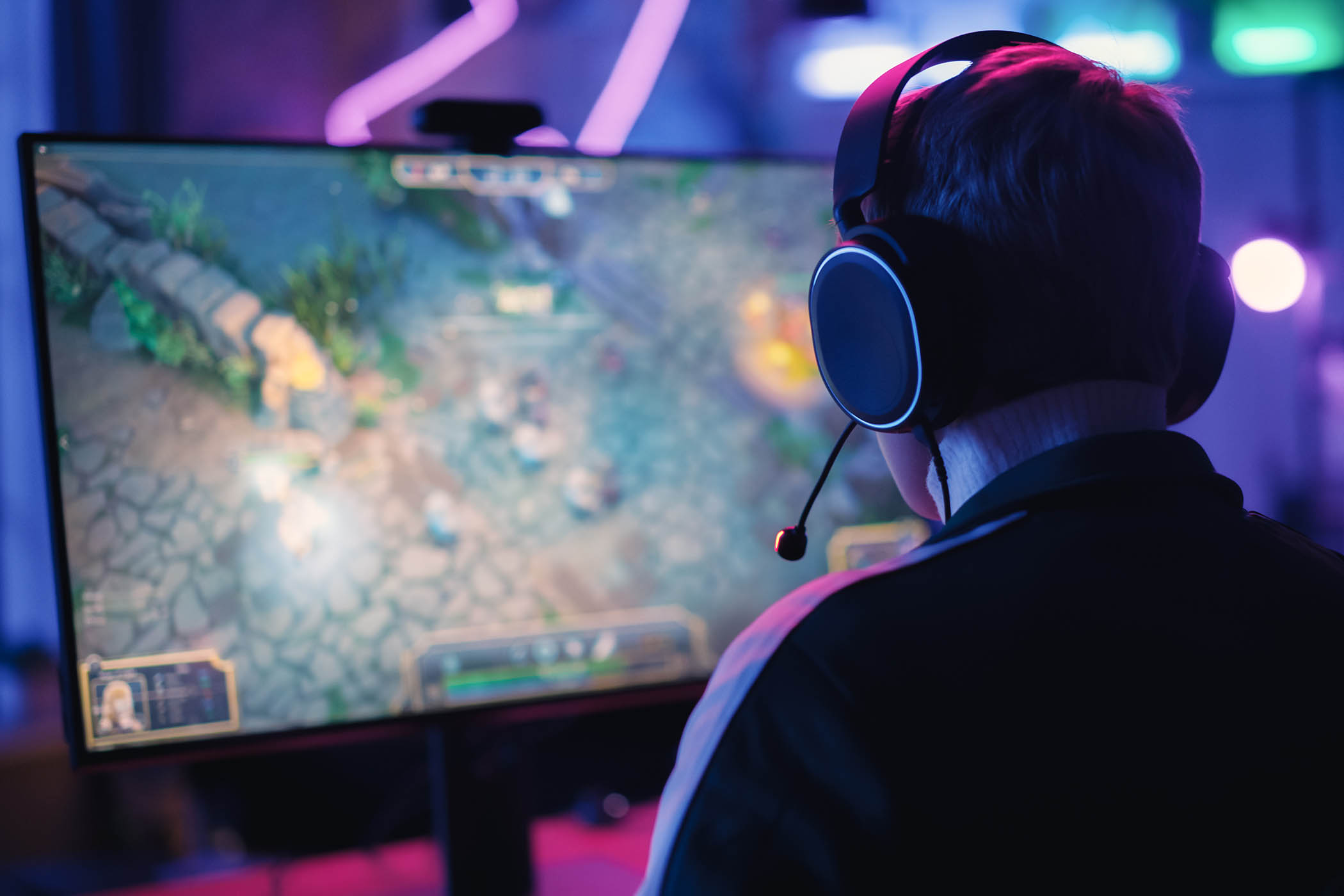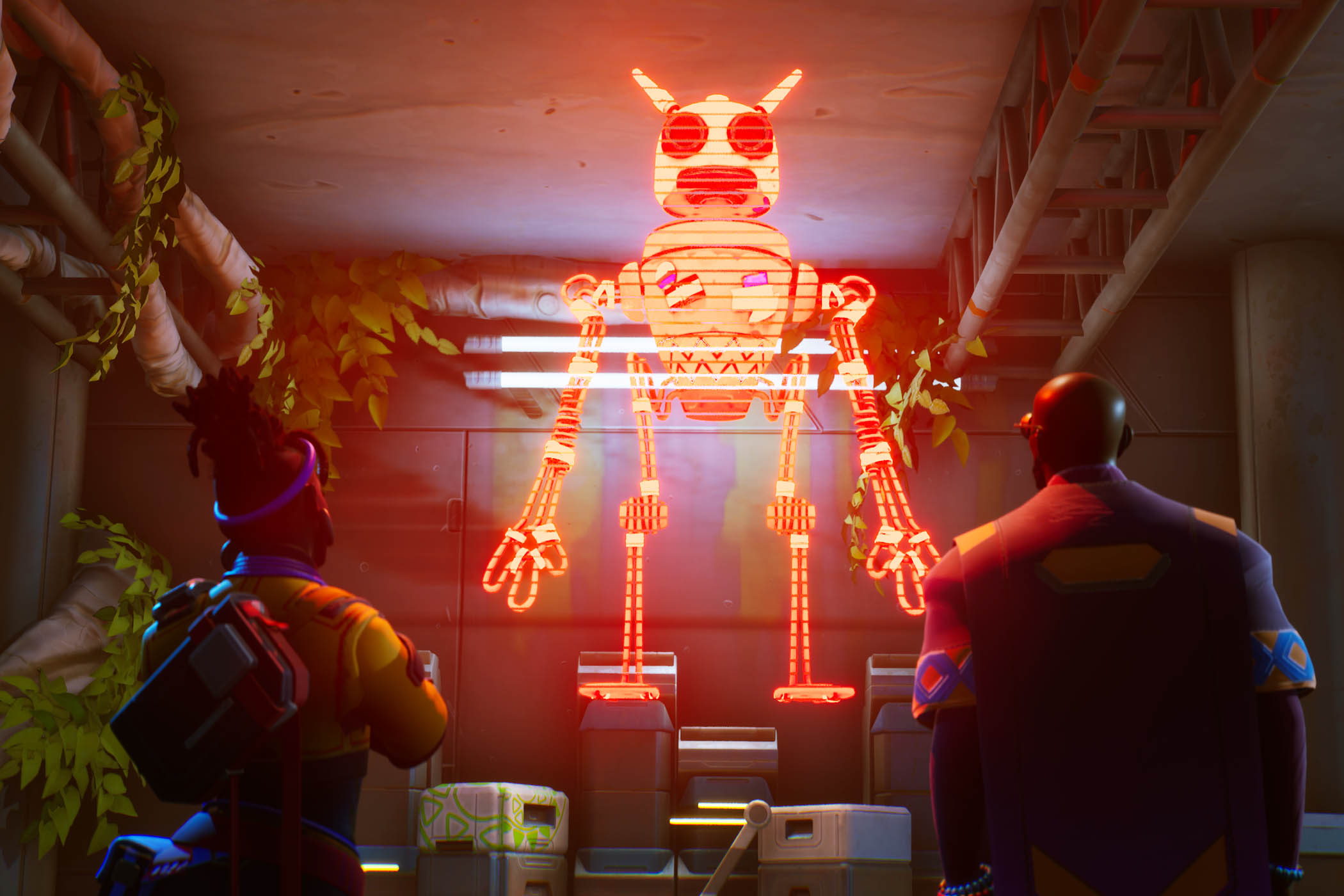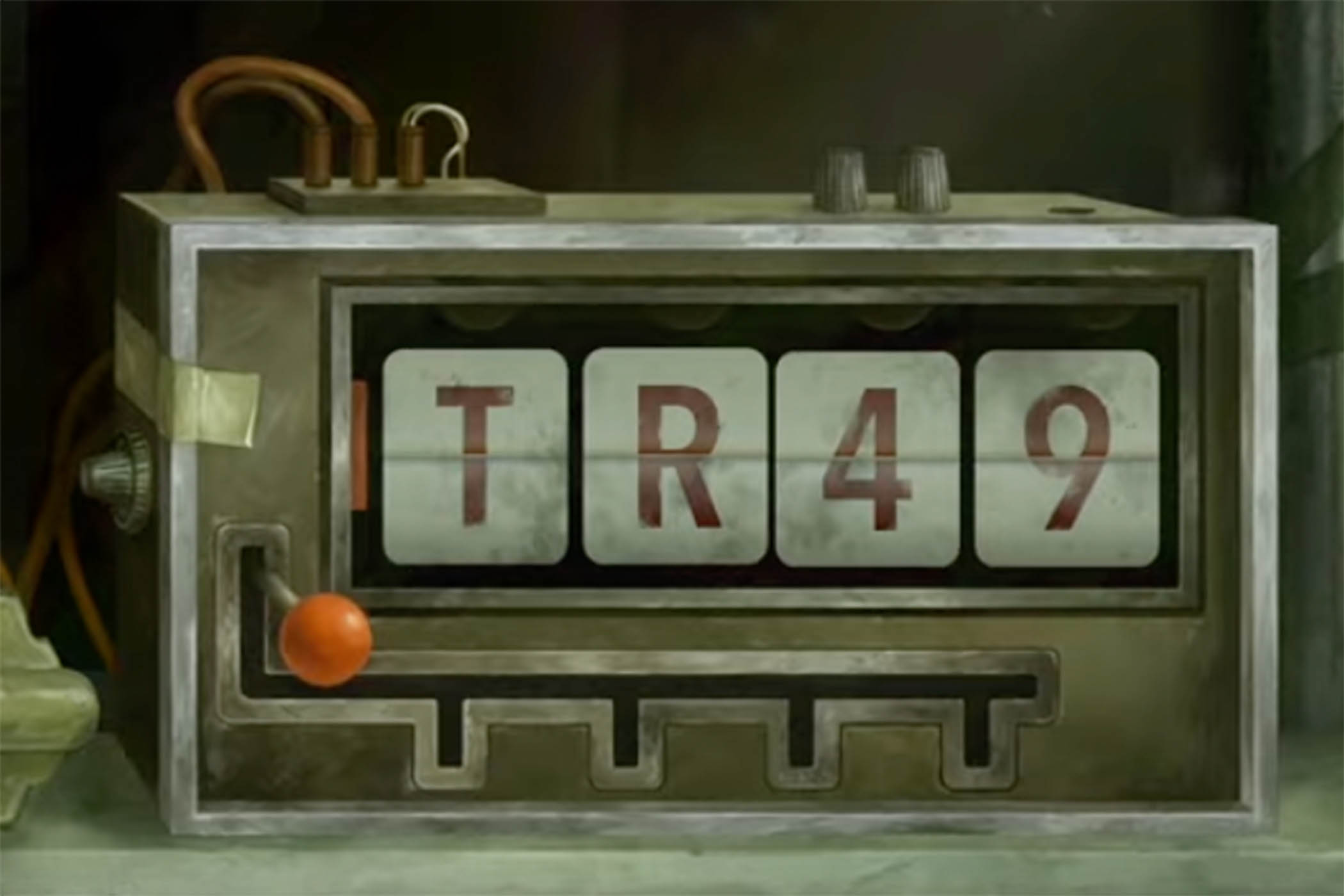It’s been months of negotiation and poring over the meaning of clauses in contracts; late nights and early mornings in discussion with people based in Singapore. There have been complicated phone calls with lawyers. My bank manager came to my house to check on my fiscal propriety. And after all that, I signed a deal to buy out the video games I co-created, which I’ve been writing for more than a decade now.
The bank manager congratulated me. My lawyer toasted my success: “This is very Taylor Swift of you.” I feel a bit stunned at my own audacity. And excited. Very, very excited.
My games are fitness smartphone adventures – Zombies, Run! and The Walk. In the games you go for a run or a walk in the real world, and we tell exciting adventure stories in your headphones to encourage you to go a bit further, a bit faster, or just to make the whole business of getting some exercise a bit less boring. (Fans of my novels The Power and The Future might detect a certain title style with the latter.) Co-created with the British games company Six to Start, they are real UK success stories. They’ve been downloaded more than 10 million times, helping many people to exercise more. We’re niche for gaming, but within our niche, we’re the most successful smartphone fitness game ever made.
This is very strange for me. In one half of my life, I am part of the literary establishment: I write novels that win prizes, appear on Radio 4 talking about the arts, and I’ve reviewed books for The Observer. But in the culture sphere, I find that people don’t understand what I mean when I say I “write video games”. “What do you do?” they say, “do you code them?” No, I write the stories. “Do they have stories? I thought it was all pew pew pew, and killing sex workers. Teenage boys in their parents’ basements.”
I do have to wonder how video games have become the biggest entertainment industry by a mile – much bigger than publishing, music, film or TV. As I wrote in these pages a few weeks ago, the video games industry is worth more to the UK economy than double the fishing and steel industries combined. The average player is closer in age to 40 than 30. And yet games still occupy a strange cultural position. The only thing a lot of otherwise engaged people know about them is that they don’t want to know about them.
If that’s you: don’t feel bad. It’s not you; it’s the culture. But games are important. For one thing, online gaming is now a space in which anyone can present themselves as anything they want, and expect to be accepted in that way. If you need a starting point, watch the brilliant movie Grand Theft Hamlet, which follows a group of actors during the pandemic as they try to stage a production of Hamlet inside the game Grand Theft Auto. One of the actors is a trans woman who has to present as male in her real life; the other players treat her identity with respect even as they are pulled into another shootout. I increasingly think that one of our biggest cultural divides might be between those who’ve experienced the liberation of worlds in which you can be treated as whatever you want versus the comparative identity straitjacket of the physical world.

If you’re a literary person interested in dipping your toe in the waters of gaming, try Return of the Obra Dinn, a narrative game about a 19th-century merchant ship that’s come back to port without its crew. Or Disco Elysium or Citizen Sleeper, both of which have brilliant stories about what happens after the end of capitalism. Or The Case of the Golden Idol, a mystery game out of the former Soviet bloc about a country that gets rid of its king only to find that the parliamentarians are much, much worse. A lot of creative political thinking is happening in games.
Meanwhile, don’t assume that people in video games are unusually enlightened about the rest of the arts. Within the games industry, writing is very much the unloved child. I think I might be the only games writer to be in a position to do this kind of deal. I think that one of the important secrets of the unusual longevity of Zombies, Run!– it’s been a successful app for 12 years while most are only popular for a few months – is the quality of the storytelling. But I’ve heard commissioners say: “We’ll just make the game and then when we’re finished you’ll wrap a story around it.” Narrative as cling-film. Narrative as useless decorative ribbon.
Adrian Hon, my co-creator on Zombies, Run! recognised the importance of good storytelling. Even so, I probably only had the confidence to ask for a clause written into my contract to say I’d have the right to buy the company if it was ever up for sale because I knew that in the publishing industry my skills were actually worth something.
Newsletters
Choose the newsletters you want to receive
View more
For information about how The Observer protects your data, read our Privacy Policy
All writers do work for hire sometimes, but my games feel different to, let’s say, the legal editing work I did early in my career. I put as much into them as I do my fiction; they feel just as much my stories. But in the games industry, the writing does not usually belong to the writer. A game that I worked on and loved – Perplex City – was taken down from the internet and disappeared without anyone even sending me a text message informing me or asking if I’d like a copy of the work. It was heartbreaking. But that is not abnormal for games writing.
I’m excited about buying Zombies, Run! for so many reasons. I love my player base – thousands and thousands and thousands of people going out to get some exercise every week while I tell them stories from the zombie apocalypse to help them feel like a hero. (As far as I’m concerned, when you step out of your front door to get some exercise, you should feel like a hero.) I’m excited about making new work in this form, about thinking about what people need to help them exercise in a world that can feel dark and tough. I feel very protective of the players and of the game. I’m delighted to make sure that Zombies, Run! doesn’t end up being turned into AI slop. I’m excited to introduce it to new players.
And I’m excited about writing in games. Games are still such a young form, and they’re often not set up to allow the many brilliant games writers in the industry to do their best work. I want to nurture great writing here. As I think the longevity of Zombies, Run! proves, video games and the traditional humanities have a lot to learn from each other.
Photograph by Getty Images.Zombies Run Promo Art / Naomi Alderman



